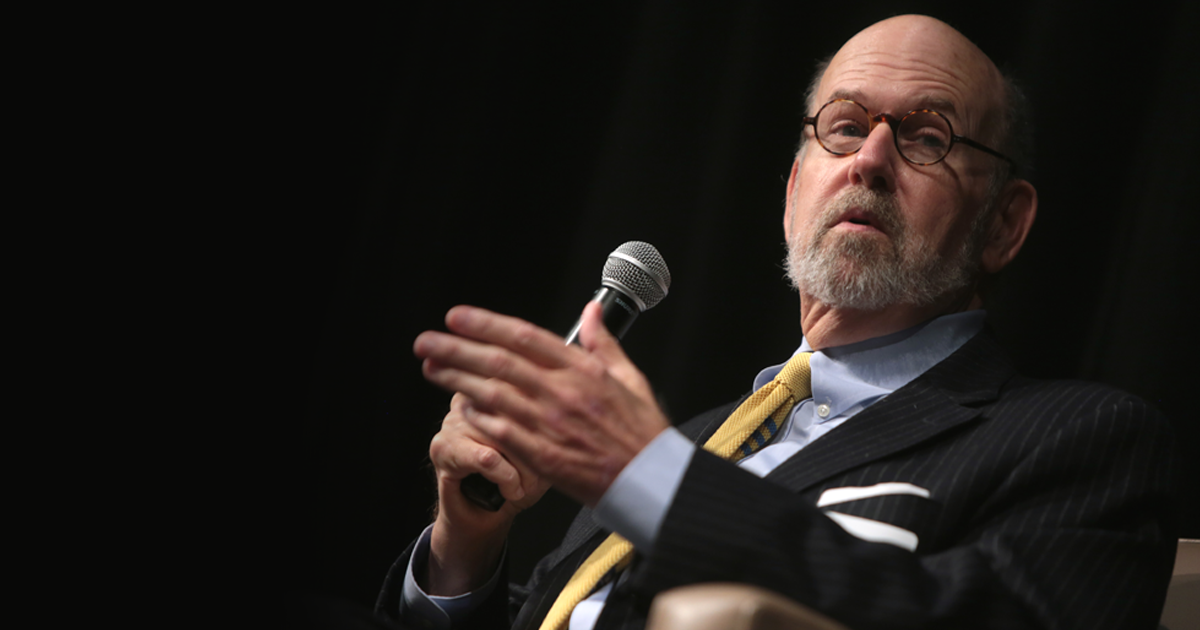Over the last year, I have focused much of my work on opposing the New Cold War with Russia and China—particularly with China.
In a recent piece, “‘No One is Calling for War with China,’” I tackled a claim that I’ve been hearing recently. I understand the argument to go like this: “advocating tougher China policy is not advocating war against China.”
In a very literal sense, this argument is correct. Those who advocate tougher China policy are not literally suggesting war with China. But even real dyed-in-the-wool China hawks aren’t demanding war. So, if not literally calling for war is the metric, then, yes, almost no one is calling for war with China.
This argument, of course, ignores the larger context of the times in which we live. That context warrants appreciation.
In March 2020, Lew Rockwell appreciated that context—even during peak COVID-hysteria. In a piece entitled “War on China?” he valiantly warned against the anti-China paranoia that rode the crest of the COVID-19 tidal wave:
People are understandably upset about the coronavirus epidemic, but if we’re not careful, an even greater danger lies ahead. Sinister forces in American political life are using the crisis to incite war with China and to stir up bad feelings towards the Chinese people. The Chinese people are in fact heroic. They are our friends, not our enemies. But the forces of evil want you to think otherwise.
Indeed, even those among us who are most concerned by a rising China do not see the Chinese people as the enemy. That said, Rockwell highlights the important context: the specter of war and American efforts to incite it:
The President’s talk about the “Chinese virus” fans the flame of ill-feelings, and some fear that the government may provoke a war with China in order to distract attention from a tanking U.S. economy. U.S. government propaganda has spread false claims about predatory Chinese trade practices to get the American people ready for hostile action toward China. As David Stockman has observed, “Indeed, the entire intellectual property theft meme is just a scam under which the business lobbies have enlisted the FBI and other law enforcement branches to function as taxpayer-financed patent attorneys and litigants.”
As we bear witness to escalating confrontation with China (especially an economic decoupling) we must appreciate this larger context. My Libertarian Institute colleague Connor Freeman provided that context in a piece written last summer:
America’s new Cold War with China is a bi-partisan imperial project. In 2011, former President Barack Obama began it in earnest, dubbing it the “Asia Pivot.” The ‘pivot’ entails surrounding China with hundreds of bases and shifting two thirds of all U.S. naval and air forces to the Asia-Pacific, the greatest military buildup since World War II.
Putative outsider Donald Trump took office and sizably enlarged the U.S. military’s footprint in what is now referred to as the “Indo-Pacific” region and significantly increased provocations of China.
Now President Joe Biden and his hawk infested administration are escalating tensions with Beijing to heights previously unseen.
Biden has said bluntly that the U.S. is in “extreme competition” with China. In his first address to Congress, Biden said we are competing with China to “win the 21st century.” Space Force has plans for the moon to be a “militarized front.” They see it as a venue for a future war. Washington is spending more on the military and so called “defense” than at any time in the nation’s history. The Republican Party’s neocons say that even Biden’s 2022 national security budget request for more than $750 billion is not enough to counter China and are demanding that number be increased by tens of billions.
Since the Ukraine crisis, U.S. tensions with China have only escalated. In late March 2022, the Pentagon released its first National Defense Strategy (NDS) since General James Mattis declared “Great Power Competition” with Russia and China in 2018. The 2022 NDS sees China upgraded to Washington’s number one threat.
The West’s economic blacklisting of Russia has further exacerbated tensions between Washington and China. It has caused the predictable result of driving Russia and China together.
If some advocates of liberty believe that the US should be tougher on China—in any sense—that is their prerogative. But they must appreciate what tough China policy has looked like in the above context of “extreme competition.” Substantively, the last few years have seen the U.S.:
- Sail warships through the South China Sea and the Strait of Taiwan on a near-monthly basis.
- Fly record numbers of spy planes in the South China Sea and along the Chinese coast (three to five per day).
- Pledge to defend Japan’s claims to the Senkaku Islands.
- Pledge to defend the Philippines’s claims to the disputed Whitson Reef.
- Sell a glut of weapons to Taiwan, including a recent Patriot Missile Support Package worth $95 million. According to Bloomberg, at the beginning of the Biden administration, the US had announced more than $23 billion in arms sales to Taiwan since 2010.
- Dispatch US Marines and Green Berets to Taiwan to train Taiwanese soldiers.
- Form NATO-style alliances in the Indo-Pacific with the UK, Japan, India, and Australia.
- Participate in provocative military exercises with the above nations. For example, in February 2022, the US launched ”Operation Cope North” which saw the US, Japan, and Australia hone their forces’ interoperability. The training involved 2,000 sorties across seven Pacific islands and 10 airfields. It saw 2,500 U.S. airmen, Marines, and sailors training alongside 1,000 soldiers from Japan and Australia. It involved 130 aircraft from over 30 units.
- Sanction Chinese industry in Xinjiang.
- Accuse China of genocide on the world stage.
So yes, Lew Rockwell is right: China is fixed firmly in the crosshairs of the U.S. empire. The above “extreme competition” policies substantiate that view.
As fellow lovers of liberty whose antiwar convictions are rooted in hatred for the state, we must loudly condemn the above policies—especially those of us who’d like to see otherwise tougher China policy—lest we slam the bolt home and prime the trigger.
































